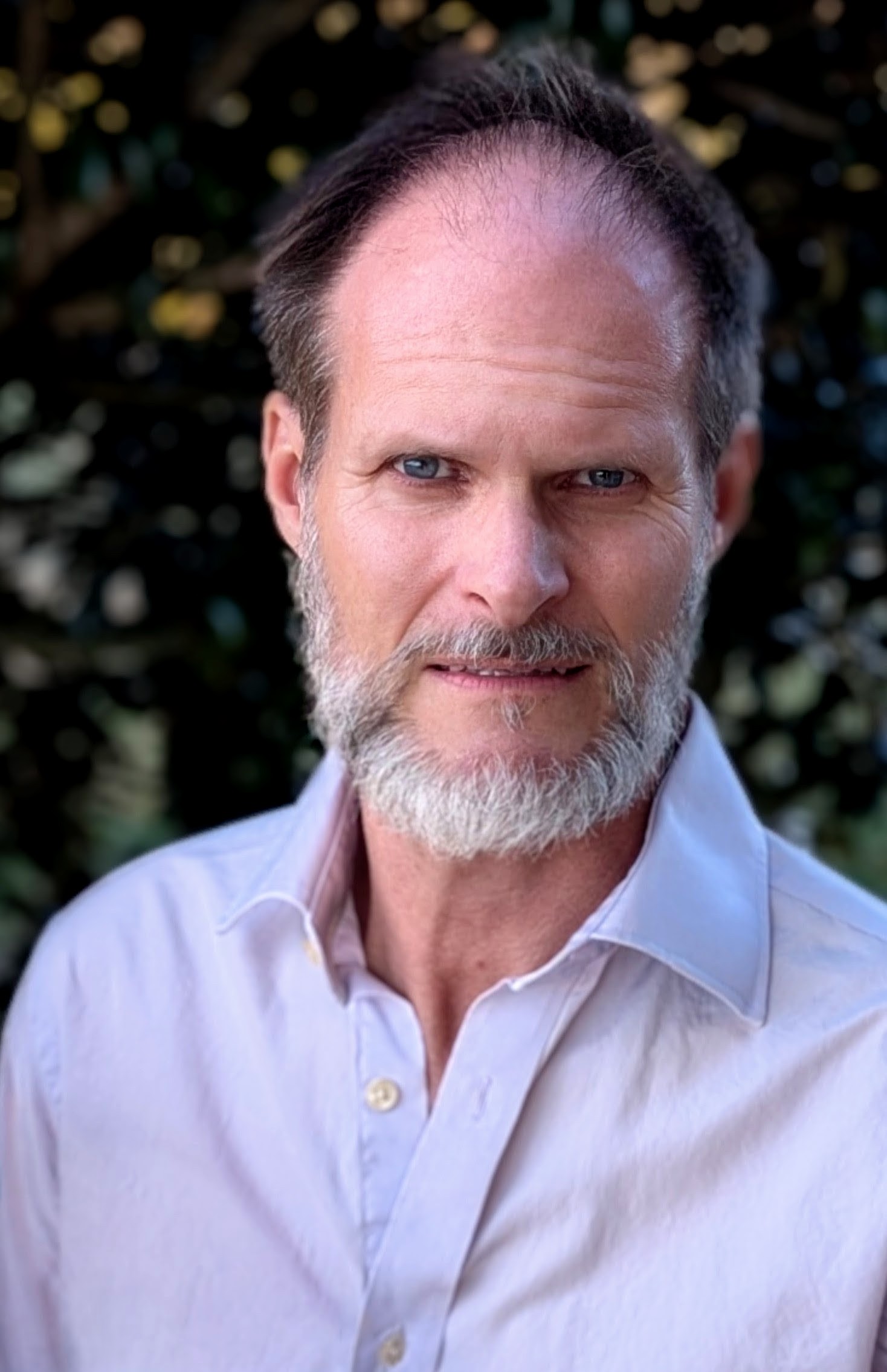Terry Thorsen is a self-described technologist and co-founder of ChartIQ, a Charlottesville-based charting provider for the financial services industry. Seeking to apply his experience from the tech sector to more creative endeavors, Thorsen recently wrote The Germans Have a Word for It, a speculative fiction novel that will be published this month. His debut book tells the story of an out-of-work writer and his relationship with an AI app that is modeled on his dead wife. It’s an interesting and relevant premise, as stories about the Jessica Simulation and other advances in AI continue to make headlines, inspiring a mix of awe and dread.
“I guess I’m not surprised that this stuff is happening already in the real world,” Thorsen says. “AI’s going to tell you what you want to hear. We have to learn collectively not to get sucked in, and that will take some time.”
Despite our present hyperawareness of AI, Thorsen drew inspiration for the novel from a personal experience in his own life. “After [my father’s] death, I found myself still flipping over to text him, and each time coming face to face with his undead text stream,” he says. “It gave me this strange feeling that is hard to describe, like I should be able to talk to him, even though I couldn’t. I mentioned this weird feeling to my cousin, joking that the Germans probably had a word for it. The story just sort of burst out of those words and wouldn’t go away.”
Indeed, though the novel is rooted in the idea of technological development, the story itself focuses on the relational and interpersonal dynamics of Thorsen’s characters, humans and AI alike. “AI is a reflection of humanity,” Thorsen says. “What I hope the book suggests is that we need to be wondering about ourselves more than the reflection. Are we humans anything more than just biological automatons responding to prompts? I think the answer is yes, we are more than Darwin’s [large language models], but each of us can only know for sure if we look inside and then prove it to ourselves by making active choices. Hopefully the right ones. AI is going to make many wrong choices seductively easy.” The Germans Have a Word for It will be available for purchase later this month.

Keep looking up
“I just have this crazy belief that it would do humanity good if we all had a better understanding of the universe we are part of,” writes UVA astronomy professor Kelsey Johnson in her latest book, Into the Unknown: The Quest to Understand the Mysteries of the Cosmos. “This is a book about what we don’t know and why we don’t know it,” she adds. “My goal is to entice you to start questioning your own knowledge.”
In this captivating read, Johnson cultivates curiosity through unexpected anecdotes and straightforward explanations, making intimidating topics like astrophysics and quantum mechanics feel fun. Writing for non-scientists, Johnson crafts an insightful and challenging yet accessible book with chapters that are short and punchy, easy to read in small chunks. “One of the reasons our world seems to make sense is simply that we are used to it,” she writes, acknowledging that this familiarity can lead us to assume we already know everything. However, she adds, “Have you ever heard of the Mpemba effect? Probably not. Under very special circumstances, hot water can freeze faster than cold water. Does that defy your intuition and lived experience? Good. Let that be a lesson.”
Indeed, Johnson encourages a mix of open-minded inquiry and skepticism, balancing the importance of empirical evidence with aspects of our reality that may, in fact, be unknowable. Her writing is entertaining and imbued with the kind of enthusiasm and humor that great teachers use to engage reluctant students. She digs into concepts that seem obvious on the surface—like exploring how we can ever really “know” anything or how time works—while also venturing into headier existential questions about dark matter, extraterrestrial life, and hidden dimensions.
As part of these explorations, Johnson traces her own experience with science back to elementary school, where she developed an interest in space that persists to this day, and informs her style as a teacher and advocate for science education. She writes, “After ten years of college and graduate school, and now many years of teaching at one of the top public universities in the world, I have honed my understanding of what is known and what may be unknowable. … Over these years, I’ve developed a passion for trying to help people understand the foundations of the great mysteries of the cosmos—without needing years of math and science.”
This passion can also be seen in Johnson’s work outside of academia, as author of the children’s book, Constellations for Kids, and as founder of Dark Skies, Bright Kids, a primarily volunteer-run science outreach group seeking to enhance science education in Virginia’s elementary schools and foster the natural curiosity of children by helping them explore the universe in a social setting with fun, hands-on activities. After all, as Johnson writes, “The world is a lot more interesting if you are curious.”
Kelsey Johnson will discuss her book on February 22 at New Dominion Bookshop.






